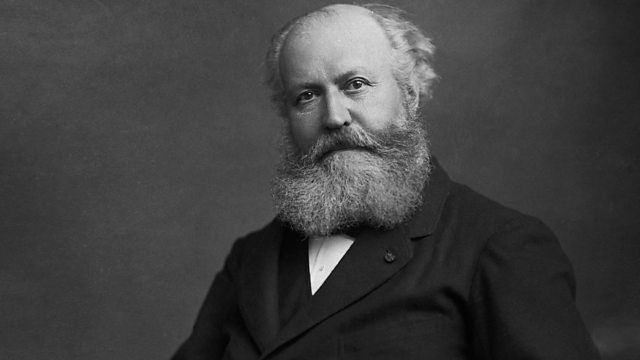
An artist's destiny
Donald Macleod explores Charles Gounod's student years in Italy and the sacred and symphonic music these formative years later informed, including his Symphony No 1 in D.
Donald Macleod explores Charles Gounod's student years in Italy and the sacred and symphonic music these formative years later informed, including his Symphony No.1 in D.
The importance of Charles Gounod was readily acknowledged by the generations who succeeded him. A prolific composer, his contribution to song repertoire led Ravel to call him the "founder of the French melodie". Bizet, Massenet and Saint-Saens all took inspiration from his operas, while the body of religious music he produced is so substantial, it has yet to be properly assessed. Given his standing among peers it's perhaps unfair that his reputation faded so quickly after his death in 1893. In more recent times his reputation has recovered but still, rather unfairly, rests on a handful of works. This week, therefore, presents a rare chance to delve into the surprising breadth of Gounod's musical preoccupations.
Born in 1818 into an artistic family, Gounod found success early on in 1839 as a winner of the prestigious Prix de Rome competition. The years he spent in Rome as a consequence led to a life-long love affair with Italy. As a young man he considered taking holy orders, but his desire for success as a theatre composer won out in the end. While he continued to write music for the church, he went on to complete twelve operas, among them "Faust", "Mireille", hugely popular in its day, and "Romeo et Juliette".
Today Donald Macleod follows Gounod's progress from the Conservatoire in Paris to Rome, where he took up a Prix de Rome bursary. There he fell in love with the sound of plainchant in the Sistine Chapel and encountered the instrumental music of the German masters through an acquaintanceship with Fanny Hensel.
Ah! Je veux vivre (Romeo et Juliette)
Joan Sutherland, soprano
Orchestra of Royal Opera House
Francesco Molinari-Pradelli, conductor
Le rossignol
Ann Murray, mezzo soprano
Graham Johnson, piano
Miserere mei Deus for solo quartet, semi-chorus choir and organ ad lib
The Choir of Gonville and Caius College, Cambridge
Geoffrey Webber, director
Symphony no 1 in D
Orchestra della Svizzera Italiana
Oleg Caetani, conductor.
Last on
More episodes
Previous
You are at the first episode
Music Played
-
![]()
Charles Gounod
Romeo et Juliette (Act 1, No 3)
Singer: Joan Sutherland. Orchestra: Orchestra of the Royal Opera House, Covent Garden. Conductor: Francesco Molinari‐Pradelli.- Joan Sutherland: The Art of the Prima Donna.
- Decca.
- 1.
-
![]()
Charles Gounod
Au rossignol for voice and piano
Performer: Graham Johnson. Singer: Ann Murray.- Charles Gounod - Songs.
- Hyperion.
- 7.
-
![]()
Charles Gounod
Miserere mei deus
Performer: Choir of Gonville & Caius College, Cambridge.- Gounod: Choral Music.
- Centaur.
- 7.
-
![]()
Charles Gounod
Symphony No. 1 in D major
Performer: Orchestra della Svizzera italiana. Conductor: Oleg Caetani.- Gounod: Symphonies Nos. 1-3.
- CPO.
- 1.
Broadcast
- Mon 11 Jun 2018 12:00����ý Radio 3
Beethoven Unleashed – the box set
What was really wrong with Beethoven?
Composers A to Z
Who knew? Five eye-opening stories from Composer of the Week
Five reasons why we love Parry's Jerusalem
What is the strange power of Jerusalem which makes strong men weep?
A man out of time – why Parry's music and ideas were at odds with his image...
The composer of Jerusalem was very far from the conservative figure his image suggests.
Composer Help Page
Find resources and contacts for composers from within the classical music industry.





